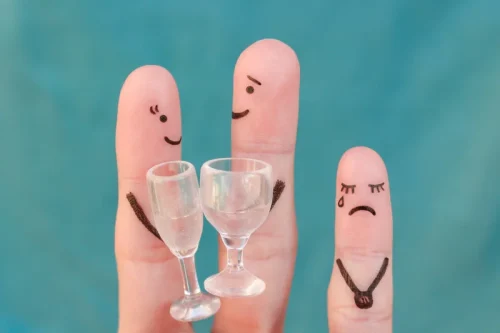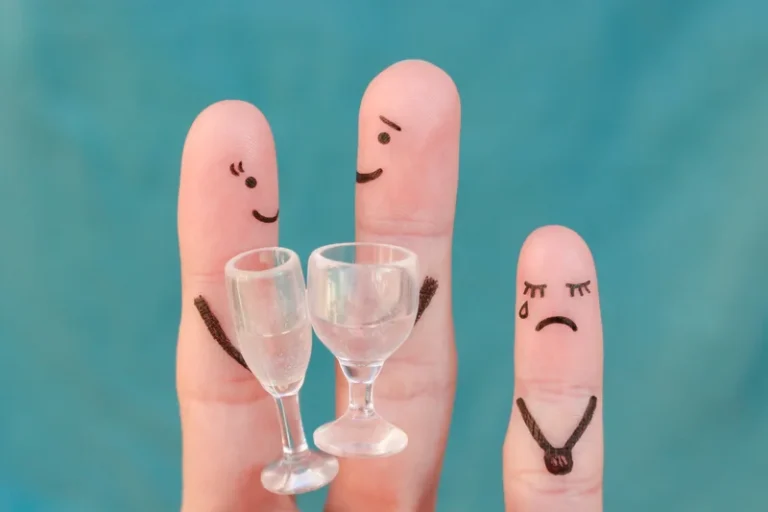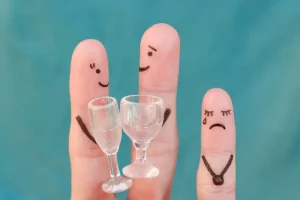
Family therapy sessions also allow married partners to work through any trauma or emotional issues that developed due to one spouse’s addiction. Dealing with an addicted spouse can be frightening and leave you feeling uncertain. The good news is that many recovery centers are available to help, and many treatment programs often will include the non-addict partner. Because intimacy is heavily reliant on trust, it’s typical for closeness between a couple to suffer because of substance abuse issues. When your partner has broken your trust, you may find it challenging to feel safe and secure, wondering if your spouse is under the influence and lying about it. Divorce cases often deal with “money issues” as the primary reason for marriage termination.
AspenRidge Recovery: Rebuilding Relationships with Treatment Programs
It is important not to give up, even if you or your loved one are not immediately successful in treatment. Only around 8% to 12% of all people who go to treatment are successful for the first time. Research has found that drug or alcohol use is present in 40 to 60 percent of IPV cases.
Addiction
They may be subject to physical, emotional or sexual abuse by the addicted individual. They may try to hide their spouse’s addiction from friends or family members, which can cause a great deal of stress and lead to social isolation. The parent with the addiction may find that long term success is tied to therapy and treatment. There are various 12-step programs and medication assisted programs. There is cognitive behavioral therapy which helps patients recognize and change negative thought patterns. There are group therapy sessions for those who struggle to go forward on their own, and there is individual therapy for those who need a personal connection made to be effective.

Divorce And Addiction: The Impact On Children
The codependent individual maintains the relationship despite the fact that it’s emotionally destructive and harmful to their health. I’m curious about the rate of divorce in marriages where the alcoholic gets sober. Based on the stories I divorce rates after sobriety know, and our personal experience, I’ll bet that divorce rate is over 80%. I thought getting sober was the hardest thing I’d ever do until I experienced the damage recovery did to my relationship. Recovering our marriage from alcoholism is the challenge of our lives.

Seek support
Recovery can also sometimes uncover underlying mental health conditions that have contributed to substance use disorder. For example, up to half of people with substance use disorder have also experienced symptoms of post-traumatic stress disorder (PTSD). It’s well-known that substance use disorder (SUD) can negatively affect relationships.
What Happens When Alcoholism Goes Untreated?

To change alcohol and divorce Halfway house statistics, it’s critical that spouse’s seek recovery sooner. Courts make decisions about custody based on what they determine is in the best interests of the child. A judge will take a spouse’s drinking problem into consideration when making a custody determination. The court may also order the alcoholic parent to receive addiction treatment.
- We have expert addiction specialists standing by ready to speak confidentially with you.
- For these reasons and many more, a couple may decide to separate and divorce in hopes that it will allow their children to continue growing in a safer and healthier environment.
- She believes she was probably a rodeo queen in another life and recharges by spending time with friends and family.
- If you’re married to someone who is addicted to drugs or certain behavioral patterns (e.g. gambling), you’ve likely experienced this for yourself.
- We have provided links to these sites for information that may be of interest to you.
- With substance-induced marriage troubles in mind, a program which offers family therapy and support and/or marriage counseling should be made a priority.
Specializing in Compulsive Hoarding and Behavior Addictions, Brionna guides clients towards healthier relationships and boundaries. Additionally, she is trained in Brainspotting, offering a unique approach to trauma-informed care. Chanel describes herself as a humanistic therapist focused on building rapport and trust. She knows that when both of those are realized, they can accomplish each client’s unique goals together. She specializes in mood and personality disorders as they relate to addiction and is passionate about healing trauma by way of brainspotting and other trauma therapy methods. She has a goal to visit every state capitol and has been to 29 so far!
Sobriety, in these circumstances, transforms from a challenge to a powerful ally, guiding individuals through one of life’s most difficult transitions. Navigating through a divorce is a profoundly challenging experience, one that tests emotional resilience and strength. There are over 40 million people in the U.S. alone living with substance use disorder.
Sustained Recovery
Depending on the type of addiction, some withdrawal symptoms can be dangerous. Medical detox programs provide medical care and support during the early stages of withdrawal to ensure your spouse’s safety and lessen their discomfort. Unfortunately, divorce is a reality for millions of Americans, and people struggling with addiction — as well as those currently in addiction recovery — are far from exempt. Here’s a closer look at the impact of divorce on addiction treatment and recovery, along with tips for maintaining your sobriety during this difficult time.